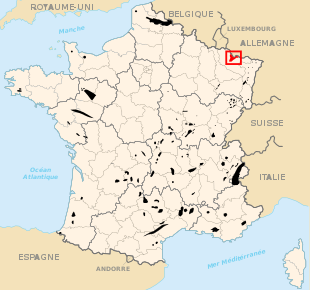I see the Germans suing for terms by no later than April 1919 with the Allies on the RHINE.
The Americans don't even have to show up.
... and what do you dream of at night ?
Tanks ... . The French have them and will get more.
Build from what steel ?
France had to import up to 3/4 of the steel it used up for its military. Even before the germans cut them of their main source of ore to make steel. ... not to talk about the coke necessary to cook the steel which prewar came mainly from Germany.
During the war France imported even more steel from GB as well as mainly from ... the US of A. ... only that they had to buy on british accounts as Wall Street was somewhat ... reluctant giving France credit. In 1915 they managed to get a 10 million $ credit from First National Bank (?) and Morgans combined and only after much efforts thoughbut having asked for 100 millions ... 0.0 ...
And , btw, the british would also run short on credit - as discussed at this board numerous times - what won't leave them broke but considerably diminished in british ability to pay even for its own purchases. And .... yes the french had #mountains# of gold in their chests ... but only did not want to ship it at all for paying.
There's also another effect of no USW ... 'normal' subwarfare which ate considerably in british bottoms available already well before USW surging up from September 1916 onwards (
see here). And - as said - the british goverment would have problems buying/chartering other esp in the US of A (running out of collateral mobilizable in the US of A).
And with lesser and lesser ships also lesser and lesser goods (aside to have to pay for) being shipped towards the european Entente-'partners'. ... including the french and their hunger for steel ... to built i.e. tanks.
Germans don't have tanks and little prospect of getting any.
Aside from
some hundred captured and repaired they had aside the BIG A7V the 'light' tanks in the pipeline for production LK I, II and III. So ... rather more than 'little prospect'.
and they are running out of airplanes and pilots.
... I'm somehow afraid you con found World War ONE with World War TWO here. Aside from the hefty airplane building program (
otherwise the 5000 airplane motors to transfer postwar to the allies as well as the destruction of said unused plane are difficult to explain) until the end of the war the germans had as much or as less a pilots problem as the allies (
remember ? ITTL no US dough boys to fly french planes ;-) ).
but with a Spartacus Movement on their hands
Though the Spartakus at that time existed as a small propaganda group within the USPD only it was far from a "movement".
And with the ITTL rather better running 'Kaiserschlacht' aka german offense in spring or ITTL rather summer (
no US of A entry so far => more time for getting more troops out of the east) there won't be the desperate 'last fleet action' attempt that lead to the november revolution in Germany.
And the moves to a democratisation esp. of Prussia came more, more often and in ever faster frequence.
Quite some exaggeration. There was a food harvest and the grain deliveries already comming IOTL out of Ukraine were considerable. Therefore the harvest to be expected for 1918 ITTL - in Germany, Ober-Ost, Austria-Hungary as well as the Ukraine) would be rather positivly received.
No, IMHO there are quite some probable chances for the CP to make some considerable gains in 1918/1919 and rather likely the Entente mostly Britain will - behind curtains - ask if there won't be a possibilitzy for talks which due to near complete exhaustion on all sides might commence in ... midth to late 1919.
